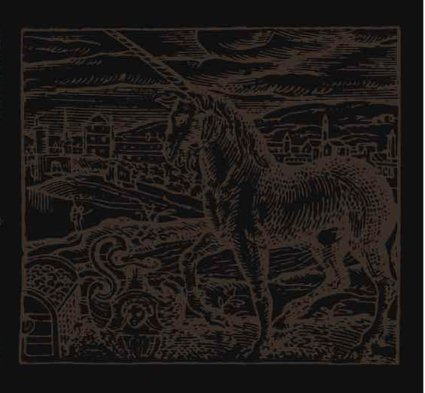By Jonathan Smith
If 2010 was any indication, then it seems about right that around March/April there would be a release that will be a contender for my year-end list. Paragate is that album. The genesis of Echtra as an act can be traced to its two members, Echtra and Threnos, both of whom are and have been involved with a variety of the eco-oriented West Coast bands (Fauna, Threnos, Alethes, to name a few) that are labelled “Cascadian Black Metal.” That connection is made even more clear by the band’s philosophical self-description of their namesake and their work: “The hero’s journey par excellence, Echtra represents the transition between this world and the others. A seed, carried as close to one’s heart as spatiality will allow, germinates rebirth and a nomadic wandering no longer bound.” However, Paragate offers a slightly different musical aesthetic (described as “blackened drone”) that makes it stand apart from the band members’ other projects.
Paragate is not a combo of pieces of music so much as musical narrative that is best appreciated in its 46-minute entirety. There are no breaks, no pauses. It’s close to meditative in its structure, composed of intertwined elements of ambient, folk, doom-drone, and black metal. The album begins with what sounds like a combination of wind chimes and feedback before scaling back to a peaceful yet haunting acoustic riff that forms the basis of the first track’s spine. It mutates from there, but there are also multiple moments that harken back to that first organic-sounding strain. Bass drums finally begin to emerge several minutes in, but like most of the usual metallic staples they’re kept tightly restrained in their use. It isn’t until the album’s climax that anything resembling a black metal assault begins, and it quickly morphs into a more minimalist soundscape punctuated by massive power chords. It’s a place quite different from where the record began, but with enough similarities that you can recognize how you got there.
Echtra are among those bands that do not invite the exuberance or intensity of much extreme music, instead appealing to listeners’ more contemplative sensibilities. Paragate, of all the band’s output, is the most cohesive and single-minded work they’ve yet released. It’s an album that I’ve felt compelled to play multiple times over the last few days, and always late in the evening when there are few other distractions. While I’ve heard many one- or two-song albums that drag you into their unflinching fury, despair, or violence, Paragate is gentler and yet at times slightly creepier in its approach. To describe it in more detail would ruin the journey, one which I encourage readers to seek out for themselves.
(Temple of Torturous)



